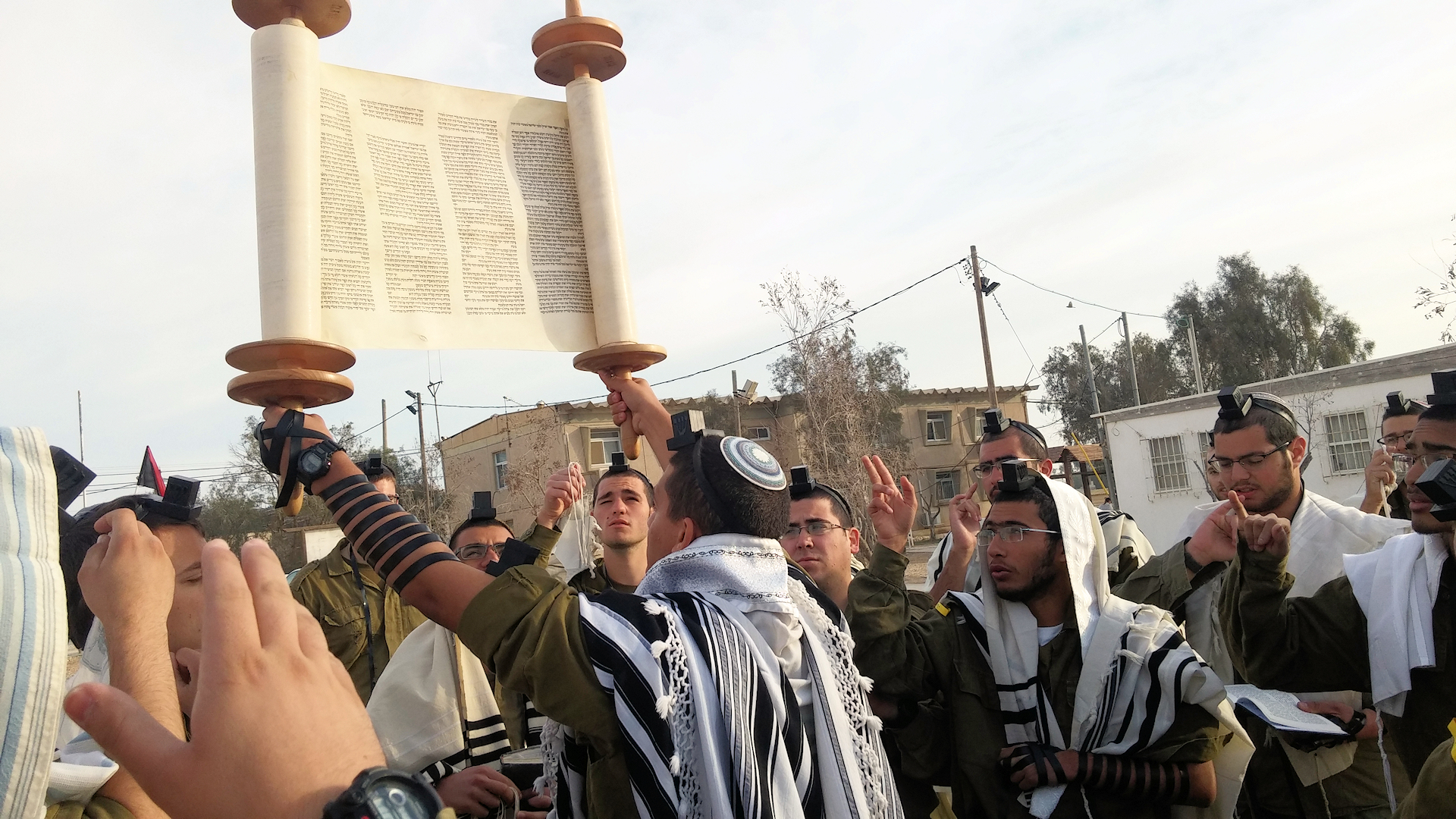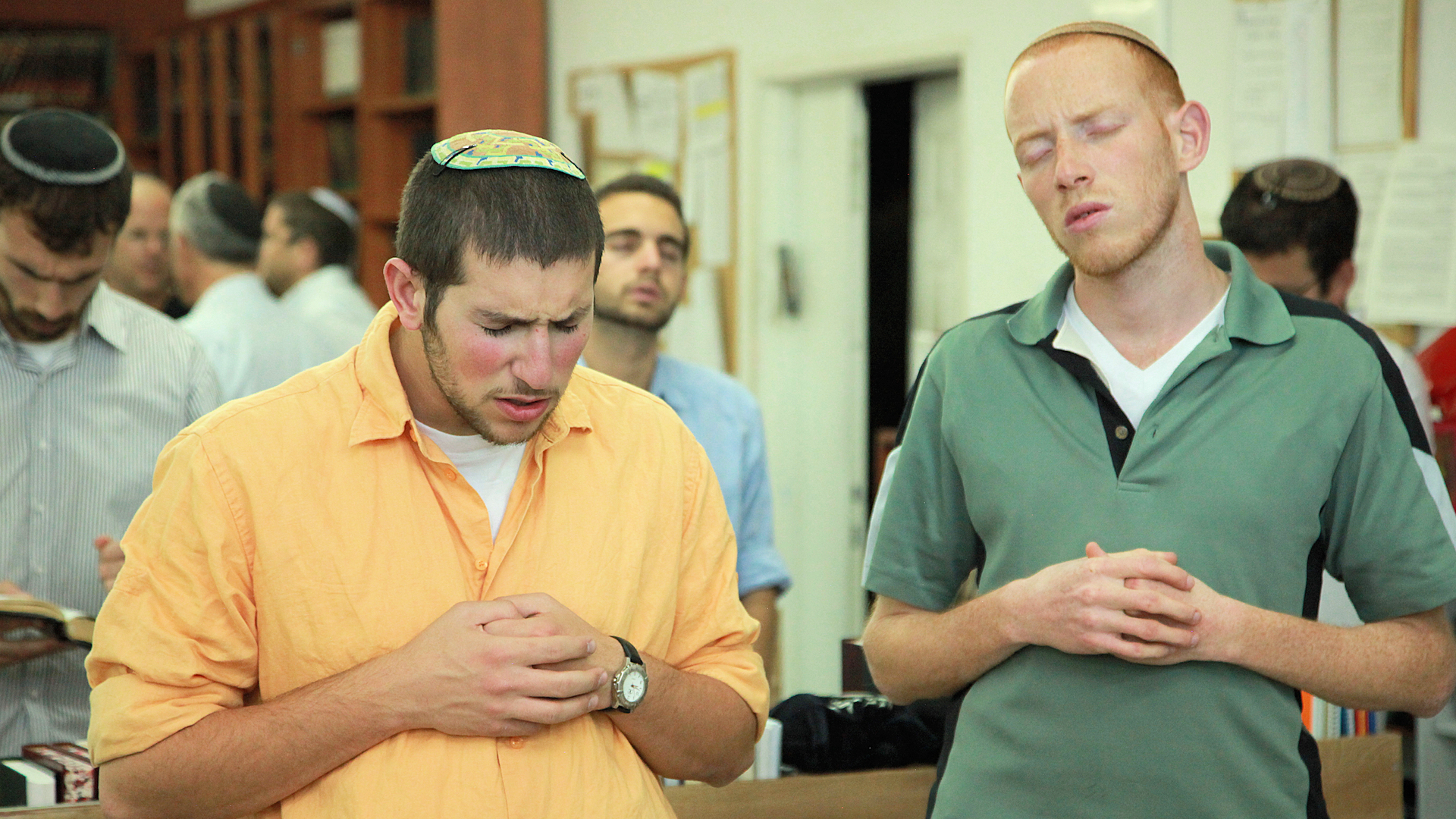The singing of the well and the mission
Parsha and its implementation - Parashat Chukat - and the war of the 'Iron Swords' 5784
Rabbi Eliezer Haim Shenvald
In memory of the Lubavitcher Rebbe, Rabbi Menachem Mendel Schneerson, of righteous memory marking 30 years since his passing on the 3rd of Tammuz.
Dedicated to the IDF soldiers' success, to safeguard them lest any harm come to them, to the healing of all the wounded and the return of the abducted.
This past week, on the 3rd of Tammuz, the Jewish world commemorated the 30th anniversary of the passing of the Lubavitcher Rebbe, Rabbi Menachem Mendel Schneerson, the last Rebbe of Chabad, ZT"L.
On this day he was praised and stories were told about his vision and mission to reach and empower every Jewish person all over the world, after the Holocaust. It is hard to encompass his work and his great contribution to Judaism in a limited number of words.
The Lubavitcher Rebbe saw his role as a 'mission', not just as the leader of the Chabad Hasidic movement but the Israeli public. He took responsibility for the fate of every Jew, and he devoted himself to this cause with all his heart. This is how he led Chabad and made it a Pan-Israeli Hasidism. Hasidism does not concentrate only within its four walls but sees the need to strengthen Judaism among the entire Jewish public around the world. In contrast to those who withdraw and hide themselves from modernity, he demanded that his Hasidim be activists and act in the spirit of the verse:
וּפָרַצְתָּ יָמָּה וָקֵדְמָה וְצָפֹנָה וָנֶגְבָּה
"…and you shall spread out to the west, to the east, to the north, and to the south". (Bereshit 28:14) Therefore, he taught his Hasidim the value of being emissaries, seeing the 'mission' as the purpose of life, feeling that they are 'messengers', to act with devotion, and to take responsibility for the future of Judaism even in remote places in the world where there is no Jewish community or educational frameworks. To establish Jewish educational systems, synagogues, mikvehs, and Chabad houses - an address and a 'warm home' for the local Jews and the Jews who happen to be around there. I have often heard of Israeli travelers who found a warm corner in Chabad houses in the far corners of the world. This way, he made the 'emissaries' one of the hallmarks of this Hasidic movement and its important contribution to the Jewish world. The Hasidim saw their Rebbe as the model 'emissary' and drew enormous inspiration from his character and tireless work as the captain leading this whole great enterprise.
The Lubavitcher Rebbe was the addressee of inquiries from many Jews from all over the world who asked him questions about various matters, big and small, important Rabbis and ordinary people, and he took the trouble to answer and bless each one of them. Despite his greatness in all Torah matters, he was careful to preserve the status of the local Rabbis, and in specific halachic questions, he referred those asking to the local Rabbis.
In his youth, the Lubavitcher Rebbe acquired a higher education in world-leading institutions. He had a broad strategic vision concerning global processes and the Jewish world. The existential security of the Jews stood before his eyes. He fought with all his might for the wholeness of the country and saw any concession and relinquishing of territory in sovereign Israel, as an existential danger, and did not hesitate to publicly express his opinion and confront leaders about his positions on the matter.
Rabbi Shapira ZT'L and Rabbi Mordechai Eliyahu ZT'L greatly respected his efforts and met with him several times.
In our Parasha we will read the "Shirat Habe'er" – the song of the well. A short song where there is more vagueness than clearness.
אָז יָשִׁיר יִשְׂרָאֵל אֶת הַשִּׁירָה הַזֹּאת עֲלִי בְאֵר עֱנוּ לָהּ. בְּאֵר חֲפָרוּהָ שָׂרִים כָּרוּהָ נְדִיבֵי הָעָם בִּמְחֹקֵק בְּמִשְׁעֲנֹתָם וּמִמִּדְבָּר מַתָּנָה. וּמִמַּתָּנָה נַחֲלִיאֵל וּמִנַּחֲלִיאֵל בָּמוֹת...
"Then Israel sang this song: "Spring up, well; sing to it, the well, which the princes dug, which the nobles of the people dug, with the scepter and with their poles." From the wilderness they traveled to Mattanah; and from Mattanah to Nahaliel; and from Nahaliel to Bamoth…" (Bamidbar 21:17-19)
This caused the Sages to question:
הנה יש להבין למה שירת הים מבינים כל תיבה ותיבה שבה ושירה זו נאמרה ברמז שאינם מבינים אותה.
"We need to understand why the song that the people under the leadership of Moshe sang after the drowning of the Egyptians in the sea, were words that we could easily understand, whereas this song is shrouded in mystical allusions none of which are easy to decipher". (Kedushat Levi Bamidbar Chukat 5)
They also asked why Moshe's name was not mentioned in it, and why was it necessary to mention the places and journeys that were alluded to in the song (Torah Temimah ibid 21:18).
Sages explained the poetry in such a way that it alludes to various aspects of learning the Torah (Nedarim 55b, and Iruvin 54a and more).
Harav Kook ZT"L referred to a certain aspect of the appearance of the Torah that is alluded to in the poem:
בְּאֵר חֲפָרוּהָ שָׂרִים כָּרוּהָ נְדִיבֵי הָעָם
"the well, which the princes dug, which the nobles of the people dug"
דרכים גדולות נפרצות ע"י גדולים, ואח"כ באים אחריהם אלה שמרחיבים ומעמיקים אותן
"Great ways are started by great men, and after them come those who widen and deepen them". (Harav Neria ZT"L – Ner LaMaor Vaetchanan)
He cites the words of the Chiddushei HaRim (Rabbi Yitzchak Meir Rotenberg-Alter): " The opening of the source of sanctity was done by great people, etc. 'which the nobles of the people dug' - they are also simple people, etc. And because it was opened by those who are great, those who are simpler can also find what belongs to them. That's why we call it 'to mine', which is the deeper digging, as it is written כִּי יִכְרֶה אִישׁ בֹּר "if a man digs a pit" "…a person who digs after another has dug…" לְהָבִיא כוֹרֶה אַחַר כּוֹרֶה etc. And it could be that simple miners dig the deepest, meaning that the enlightenment also continues to the lower worlds and the lower levels that the righteous cannot descend to them". (Sfat Emet Bamidbar Chukat 8:2 - 1738).
The Lubavitcher Rebbe outlined and delineated an 'excavation' and broke through the path of 'emissaries', as the Hasidim 'mined', and expanded it to an international scope.



